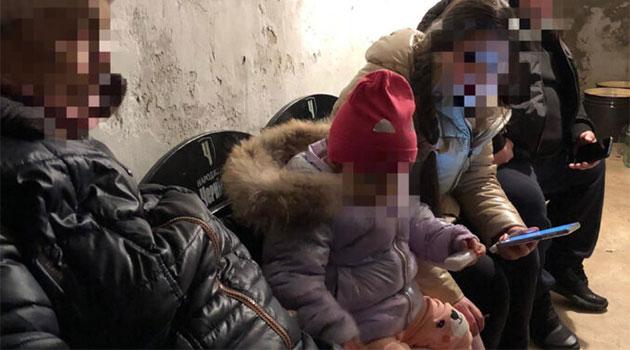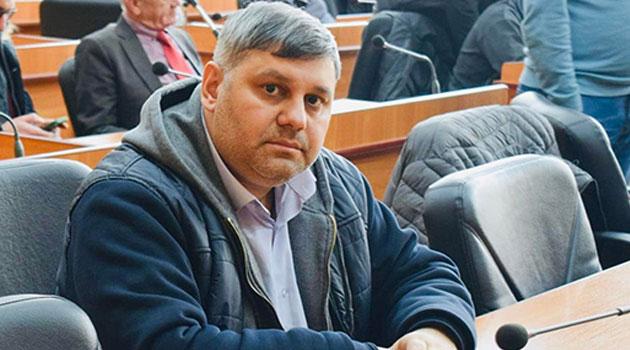Nataliia Tomenko, Romani activist from Ukraine: Antigypsyism is quite widespread here, but now non-Romani and Romani Ukrainians fight side by side for our country

Nataliia Tomenko is a young Romani woman who is an activist, artist, researcher and scholar. She has a Master’s in Cultural Heritage: Academic Research, Strategy and Management from Central European University in Vienna, Austria and a Master’s in Graphic Design from the Kharkiv State Academy of Arts and Design in Ukraine. She currently works at the European Romani Institute for Arts and Culture (ERIAC) as an intern. She also works as a member of the board and Creative Director in the Agency for the Support of Romani Culture in Ukraine (ARCA). She is also active as a coordinator of national volunteers and a defender of the human rights of Romani people in Ukraine for the European Roma Rights Centre (ERRC), supporting the defense of the human rights of Romani people in Europe and the elimination of online antigypsyism. She also works on the history of Roma and its representation in visuality as part of art projects on the subject of the cultural heritage of the Roma and the genocide perpetrated against them by Nazi Germany during the Holocaust.
“On the first day [of the Russian invasion] I just couldn’t believe it, it seemed unbelievable – then when I heard my father, mother, grandmother and sister crying… I was in shock and I experienced horror and panic. Now I have breathing problems and I can’t sleep, I have to take pills,” Tomenko said in an interview for DIKKO, an Internet magazine for Roma in Sweden.
“I don’t even know what day it is. All I know is it’s the fourth day of the war,” she told the magazine one week ago.
People are running out of food
Nataliia and her family live in central Ukraine. At the time this interview was conducted they were “relatively safe”.
The family were spending their nights in the basement hearing the sounds of bombs exploding. It was highly uncertain whether they would survive.
Nataliia was receiving news from her close friends and relatives from the areas under direct attack by mobile phone. “My aunt and her child are hiding in the basement of a Greek Catholic Church in Kyiv,” she said before describing how all financing in the country has been directed into the Army and civilians have problems finding groceries.
“The intervals of the bombing raids are so short that they are unable to leave the basement to find food. Right now they won’t be able to leave the cellar until Monday,” she told the magazine last week.
“They are running out of groceries,” she reported. Even though her own safety is threatened, she is also worried about family, friends and people in the north of the country.
“People are running out of groceries. We can’t aid the others in the border areas or in the north, though. We can’t send them anything,” she said in the interview.
My family needs me
Nataliia and her 12-year-old sister got an offer to flee to relatives near the border with Poland. Her parents urged them to do so even though her father wept at the idea that they might never see each other again.
The sisters decided to remain with their family. “I see my parents and my grandma and I know they cannot survive on their own. My father had a heart attack on the third day of the war. My grandma is quite old and sick and needs care. We have to remain together and be strong to survive,” Tomenko said.
Her relatives are now at the border with Poland. They got stuck for several days in the enormously long line there, outdoors in winter with their young children.
Families who flee abroad are being split up because the men are not allowed to leave the country. The men are emotionally upset, but at the same time they know their families’ lives have to be saved.
People are running out of food. Nataliia herself has experienced panic attacks, but at the same time she is doing her best to calm her 12-year-old sister, who is also succumbing to panic.
“She cries. I’m terribly afraid. We’re all afraid,” she told the magazine.
Roma are also Ukrainians
According to estimates, about 250 000 to 400 000 Romani people live in Ukraine. Approximately 40 000 of them have no identification of any kind.
Many live in horrifying poverty in Romani settlements that are segregated. Antigypsyism (anti-Roma racism) is quite widespread and broadly accepted both by the ordinary population and by high-ranking politicians.
The country has a long, ugly history of anti-Roma violence during which Romani people have been expelled from their homes and even murdered while police watch or even aid and abet the perpetrators. Nataliia is calling for unity, though.
“Roma are Ukrainians too. People should be united now because the time has come for us to help each other,” she said, adding that in the streets, non-Romani and Romani Ukrainians are fighting side by side for their country.
Despite their bravery and patriotism, however, Roma in Ukraine still face antigypsyism. Nataliia describes a schoolmate of her 12-year-old sister posting the derogatory message “Shut up you g*psy girl” to her in an online chat on Viber that had been set up by the school to support its pupils.
“Children who are Romani are subjected to hate even in this situation. I wrote back to the children in that chat group: ‘The time has come for us to stick together. We need to be united’,” Tomenko told DIKKO magazine.
She has been involved in working against antigypsyism for many years and before the war was involved in the work of the ARCA organization which, along with the ERRC, has been financially supported to fight antigypsyism. ARCA is currently collecting aid for Romani people in need, including internally displaced Roma.
Civilians who are most vulnerable
Along with their fellow citizens who are not Romani, the Roma in Ukraine are suffering. The bombs draw no distinctions among them.
Given the widespread nature of antigypsyism, however, there are concerns that Romani people are not receiving aid on equal terms with their fellow citizens in Ukraine. For that reason, Nataliia is also sheltering internally displaced Romani people in her own home.
The Romani settlements in the western part of Ukraine are quite impoverished. “Nobody is taking care of them,” Nataliia told the magazine.
“They have no work now. Before the war, they collected scrap metal for sale,” she explained.
“Currently they are in an even more desperate situation. They have no money to buy food,” she described.
“We have to do something. We don’t want civilians to die,” she told the magazine.
“Somebody should be taking care of them. Guaranteeing them groceries,” the activist said.
Nataliia is looking forward to a future of peace in her beloved Ukraine. She is already thinking about what kind of aid people will need to overcome this trauma.
Children and other vulnerable people in particular need help now and in the future. “My message to the Romani youth and to the Ukrainian youth is this: Many people say they’re going crazy, that they’re overwhelmed. I feel the same way myself, but if we speak with the others, if we communicate our experiences and those of our families, people will hear us. So I am calling on everybody: Do not stay silent, speak up, because if you don’t speak up, nobody will aid you or your family,” Tomenko concluded her interview with DIKKO magazine.
